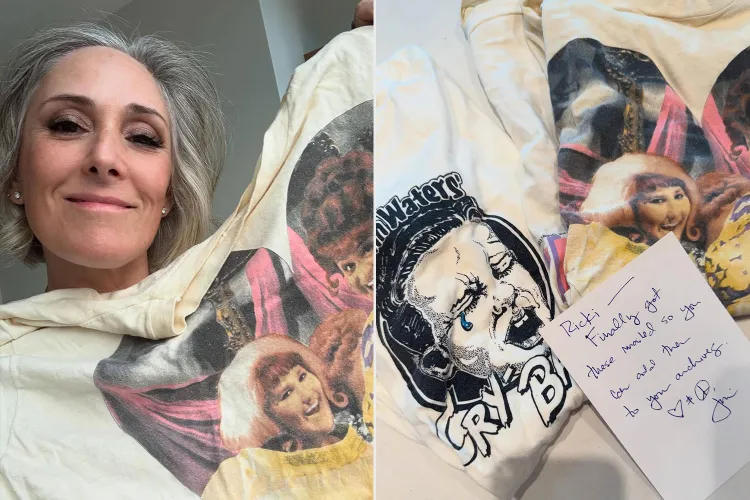A Vintage Tee Rekindles Hope for Ricki Lake After Wildfire Loss
- Aug 30, 2025
- 2 min read
30 August 2025

On a mild evening in January 2025, actress and former talk show host Ricki Lake and her husband Ross Burningham watched helplessly as the Los Angeles wildfires consumed their cherished Pacific Palisades home. It was more than a house, it was a repository of Ricki’s life and career a sanctuary filled with movie memorabilia and deeply personal artifacts. Her “dream home,” as she later described it, where she and Ross had hoped to age together, turned to ash, along with the tangible threads of her history. Among the items lost was an especially sentimental T-shirt from the 1988 film Hairspray, her debut feature by writer-director John Waters, marking the beginning of a collaborative and defining path.
Lake found herself in New York City as the wind shifted in more ways than one. The physical distance from her Los Angeles home was accompanied by a deep emotional void, punctuated by the absence of memorabilia that had quietly anchored her memories.
It was on August 5th that a single act of kindness shifted the tone from grief to gratitude. A friend from long ago, James Baggett, whom she’d met in 1987, sent two replacements: a Hairspray shirt nearly identical to the one lost, and a Cry-Baby publicity tee from Waters’s 1990 cult classic. The gesture arrived hand-written: “Ricki Finally got these mailed so you can add them to your archives.” The letter and surprise meant the world to Ricki, who shared the moment with her followers, remarking that the XXL shirts fit her “giant husband” perfectly.
The shirts symbolized more than fabric and screen history. They were talismans tiny touchstones tethering Ricki to her past in the wake of loss. She held the memory of Hairspray not only for its role as her first big screen appearance but for the personal journey it unlocked. The Cry-Baby tee, too, carried resonance another milestone in her work with John Waters, a testament to their creative chemistry. In the photographs she posted, Lake wearing the new shirts alongside Ross radiated relief, warmth, and a quiet triumph.
Loss, especially the sudden, irreversible kind forest fires bring, presses us to reckon with what remains. Lake has since expressed gratitude for blessings born from tragedy time spent with her children, rebuilding her art collection, a rediscovered appreciation for intimacy away from fame’s glare. She spoke about those changes as “many blessings to have come out of the fire,” finding meaning amid ruin.
Lake’s tale is a reminder of how objects shirts, photos, keepsakes carry more than memory. They hold identity, history, connection. When those tangible anchors vanish, an avalanche of grief follows. Yet when a dear friend mails a replacement shirt, it feels like a pebble of hope dropped into a vast chasm.
The story resonates because it is human in its simplicity. In a world of sweeping narratives, sometimes solace lies in small gestures: mailboxes delivering comfort, old friendships reviving, symbolic threads weaving continuity through upheaval. For Ricki Lake, amidst the loss of a home and the artifacts of a life built on screen, the shirts from James Baggett offered a lifeline to her narrative to career, to creativity, and to a past she would not allow to vanish entirely.



Comments